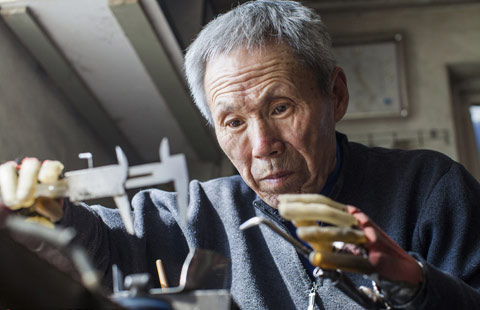Japan should know facts rather than rhetoric prevail
(Xinhua) Updated: 2012-09-27 17:04BEIJING - At the UN General Assembly debate on Wednesday, Japanese Prime Minister Yoshihiko Noda bragged about his country's "compliance with" international law in settling disputes. But his words contradict with what his government has done over the Diaoyu Islands.
"Any state has a responsibility to protect peace, ensure the safety of its people, and protect its sovereignty, territorial land and sea. Japan will also fulfill such responsibility in accordance with international law," Noda alleged.
"Any attempt to realize a country's ideology or claim by unilateral use of force or threat is inconsistent with the fundamental spirit of the UN Charter and is against the wisdom of human being, thus absolutely unacceptable," he went on.
Although the Japanese leader did not specifically mention the dispute between his country and China over the Diaoyu Islands, he was obviously trying to invoke international law and the UN Charter to whitewash his government's so-called "nationalization" of the islands, which have been part of Chinese territory since ancient times by both international law and historical facts.
Adopting a hardline stance at the United Nations, Japan attempts to sell a deliberately packaged lie to the international community to create a false impression that it rightfully owns the islands, which Japan stole from China in 1895 after the First Sino-Japanese War.
Tokyo resorts to the concept of law in a bid to beg support from the international community on the matter.
However, only facts prevail. Despite Noda's show at the UN forum, Japan lacks sufficient proof to support its claim of the islands, whereas China possesses ample evidence of its territorial sovereignty over the Diaoyu Islands since the Ming Dynasty (1368-1644).
According to the Cairo Declaration in 1943 and the Potsdam Declaration in 1945, Japan should return the Diaoyu Islands along with other territories Japan stole from China.
In flagrant disregard of historical facts, Noda argued at a news conference after his General Assembly address that the Diaoyu Islands "are the inherent part of our territory, in light of history and international law. It's very clear." Lacking historical and legal evidence, Noda's claim is void and shameless.
The Japanese prime minister also told reporters that Tokyo would not "compromise over" the issue of the Diaoyu Islands, in direct contradiction to his words at the General Assembly that disputes should be settled through peaceful means.
It is noteworthy that it was Noda's administration that stirred up the issue by its unilateral action of the so-called "nationalization" of the Diaoyu Islands.
As Beijing has pointed out, unilateral actions by Japan over the Diaoyu Islands are neither legal nor valid. This is common sense in international law.
Japan's unilateral actions and its attempt to project its image of a victimizer as a "victim" would not help Japan become a "normal" country that it has been striving for.
Confrontation with neighbors comes with a price both politically and economically. It is regrettable that Japan has chosen to take a confrontational course in defiance of both international law and historical facts.
- Students get into the swing for spring
- China's 'Tianqin' program starts infrastructure construction
- $88m vaccine sales case triggers probe
- Blacklist urged to halt invasive species
- Xi calls for new ideas to ensure 'extraordinary' 2022 Games
- GDP target is attainable, OECD chief says
- Immigrant numbers rise in cities
- 2 arrested in illegal sale of vaccines
- Zootopia sloth, foxes shoot to stardom
- Relations resumed with Gambia







